Table of Contents
IBPS PO Mains Quantitative Quiz
Quantitative Aptitude is a nerve-racking section especially in the main examination. The intense practice is required to balance Speed with respect to accuracy. The IBPS PO Mains Study Plan 2019 consists of quantitative aptitude quizzes based on the latest pattern. Moreover, various shortcut tricks & tips have been provided in solutions by experts. Bankeradda will provide daily quizzes for practice as the IBPS PO Mains is scheduled for 30th November 2019. So practice to sail through IBPS PO Mains Exam.
Directions (1-5): Study the following line graph and table carefully to answer the given questions.
Total production under various heads(in tons)
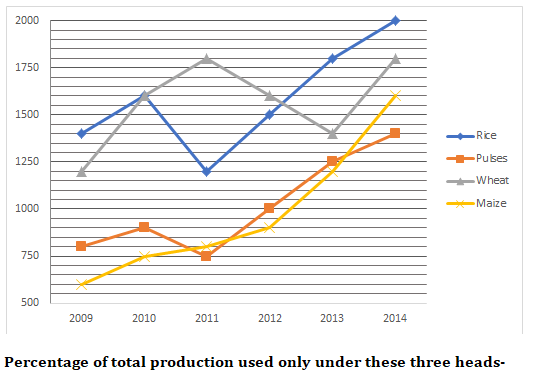
 Q1. The average production of wheat and Maize in 2011 is what percent of the supply in open market in year 2009 ?
Q1. The average production of wheat and Maize in 2011 is what percent of the supply in open market in year 2009 ?
(a) 162.5%
(b) 150.4%
(c) 170%
(d) 165.4%
(e) 172.5%
Q2. What is the ratio of export in 2012 to PDa supply in 2014 ?
(a) 31 : 19
(b) 31 : 17
(c) 41 : 31
(d) 19 : 13
(e) None of these
Q3. What is the difference between the overall production of maize from years 2009 to 2014 and production that exported in 2012 ?
(a) 3000 tons
(b) 2500 tons
(c) 2550 tons
(d) 2200 tons
(e) 2750 tons
Q4. The average production of all four crops in 2012 is what percent less than the average export in year 2009 and 2014 ? (Calculate up to two decimal points)
(a) 52.8%
(b) 40.46%
(c) 53.71%
(d) 43.18%
(e) None of these
Q5. If 20% of the supply in open market in 2011 is retained and stored, then calculate the approximate percent decrease/increase in supply in open market in 2011 as compared to 2010 ?
(a) 10%
(b) 13%
(c) 12%
(d) 15%
(e) 8%
Q6. X and Y entered into partnership with Rs. 700 and Rs. 600 respectively. After 3 months, X withdrew two-sevenths of his initial investment but after further 3 months, he puts back three-fifths of what he had withdrawn. The profit at the end of the year is Rs. 726. How much of this should X receive?
(a) Rs. 336
(b) Rs. 366
(c) Rs. 633
(d) Rs. 663
(e) Rs. 456
Directions(7-8): Raju, Rancho and Farhan entered into a business plan with their investments in the ratio 5 : 7 : 9 respectively. After 3 months, Raju withdraws his whole amount, Rancho withdraws half of his amount and Farhan triples his amount. After another 6 months, Farhan withdraws 8/9 of his amount, Rancho doubles his amount and Raju re-enters into business with an amount equal to his initial amount.
Q7. The profit at the end of year is Rs 11737. If profit is shared among all of them in ratio of their investments, then the profit of Raju is how much less than that of Rancho?
(a) Rs 2861
(b) Rs 984
(c) Rs 1331
(d) Rs 4187
(e) Rs 3137
Q8. All of them maintain their amounts at the end of 1st year for another 12 months. What is the share of Rancho if the overall profit for only 2nd year is Rs. 22500?
(a) 10000
(b) 11250
(c) 9725
(d) 12050
(e) None of these
Q9. In two alloys, aluminum and iron are in the ratios of 4 : 1 and 1 : 3. After alloying together 10 kg of the first alloy, 16 kg of the second and several kilograms of pure aluminum, an alloy was obtained in which the ratio of aluminum to iron was 3 : 2. Find the weight of the new alloy. (in kg)
(a) 15
(b) 35
(c) 65
(d) 95
(e) 54
Q10. Alloy-A contains zinc and copper in the ratio of 11 : 9 and alloy-B contains copper, zinc and lead in the ratio of 11 : 7 : 12. 40% of alloy-A and 50% of alloy-B are mixed to form alloy-C. If amount of copper in alloy-C is 28 grams more than amount of zinc in alloy-C and amount of lead in alloy-C is 108 grams, then find difference between initial quantity of alloy-A and alloy-B.
(a) 340 grams
(b) 300 grams
(c) 220 grams
(d) 400 grams
(e) 360 grams
Q11. In 120 lit mixture of milk and water, milk is 88 lit more than that of water. When ‘a’ lit of milk is taken out and (a+15) lit of water is added, ratio of milk to water in the mixture becomes 3:2. Find value of ‘a’?
(a) 23
(b) 14
(c) 21
(d) 28
(e) 16
Q12. A, B and C are partners. A receives 10/13 of the profit and B and C share the remaining profit equally. A’s income is increased by Rs. 550 when the profit rises from 11% to 13%. Find the capitals invested by B and C.
(a) Rs. 4125
(b) Rs. 4215
(c) Rs. 4251
(d) Rs. 4512
(e) None of these
Q13. 6 litres is drawn from a cask full of wine and it is then filled with water. 6 litres of the mixture is drawn and the cask is again filled with water. The quantity of wine now left in the cask is to that of the water in it as 121 : 23. How much does the cask hold?
(a) 54 litres
(b) 62 litres
(c) 70 litres
(d) 72 litres
(e) 63 litres
Q14. Three friends A, B and C started a venture with capitals in the ratio of 4 : 1 : 15. At the end of every quarter A halves his capital, while B doubles his capital and C leaves his capital untouched. This process is repeated till the end of the year. If at the end of the year B’s share of profit is Rs. 22,000, what is the total profit ? (in Rs)
(a) 88,000
(b) 1,10,000
(c) 1,21,000
(d) 99,000
(e) None of these
Q15. There is a vessel holding 40 litre of milk. 4 litre of milk is initially taken out from the vessel and 4 litre of water is then poured in. After this, 5 litre of mixture is replaced with 5 litre of water. And finally 6 litres of the mixture is replaced with 6 litre of water. How much milk (in litres) is there in the vessel ?
(a) 26.775
(b) 29.16
(c) 24.72
(d) 27.42
(e) None of these
solutions:-
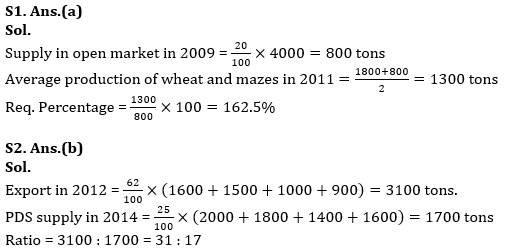



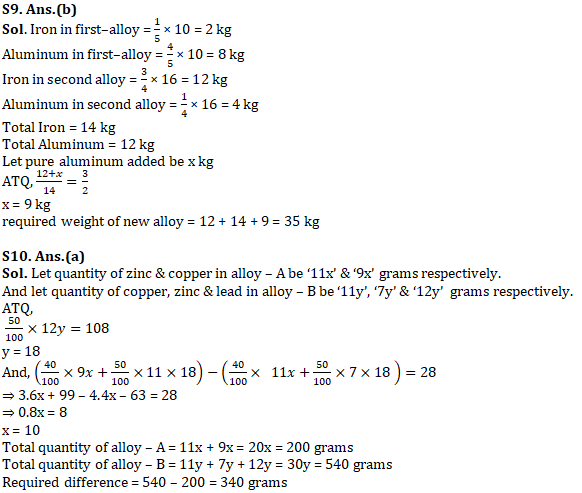

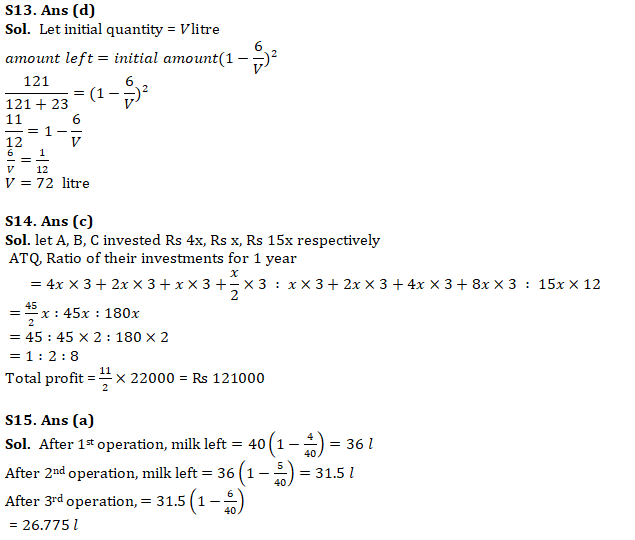
For 200+ most important arithmetic questions
- Quantitative Aptitude Study Notes for Bank Exams
- 100 MCQs Data Interpretation | Download Free PDF’s of DI
- Quantitative Aptitude Questions for all Competitive Exams

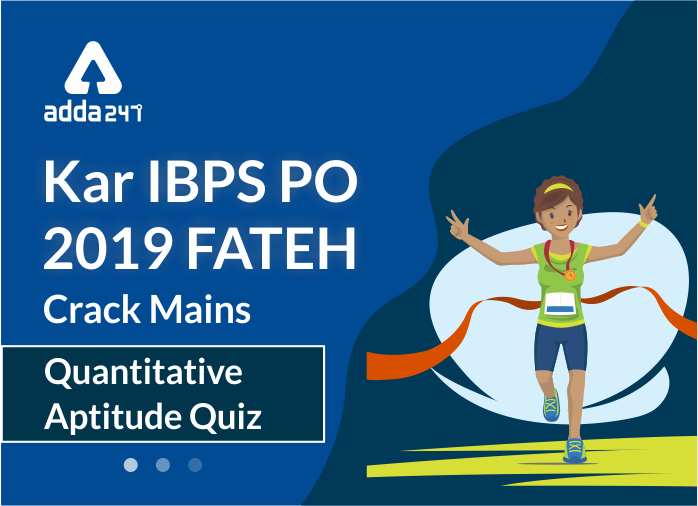



 GA Capsule for SBI Clerk Mains 2025, Dow...
GA Capsule for SBI Clerk Mains 2025, Dow...
 The Hindu Review October 2022: Download ...
The Hindu Review October 2022: Download ...
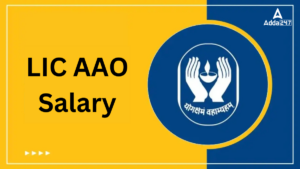 LIC AAO Salary 2025, Revised Structure, ...
LIC AAO Salary 2025, Revised Structure, ...





